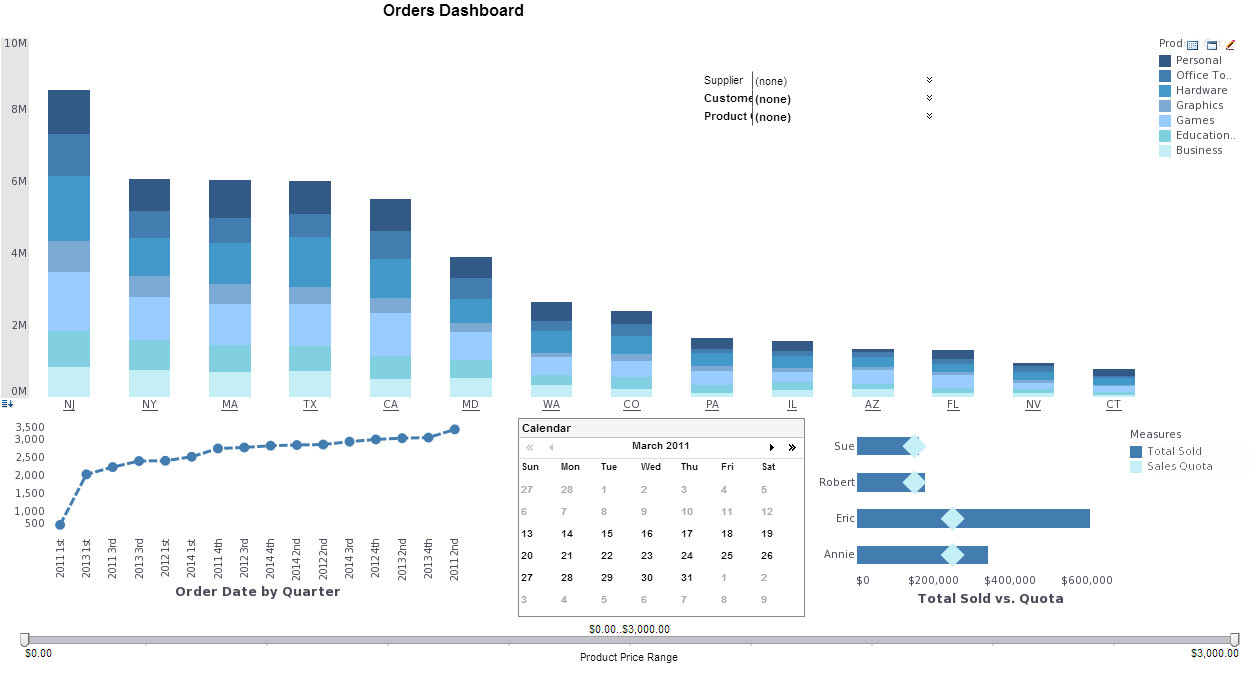How Can eCommerce Businesses Gain From Big Data?
An amazing feature about being a writer on eCommerce is that one has to constantly keep on top of the latest concepts and technologies. On more than one occasion, this has led to me following the herd and falling for the hype. I wonder if that can possibly forgive the fact that I have thus far overlooked writing about the application of big data to eCommerce. It is time for me to right this wrong.
What Is Big Data?
A textbook definition would be much more rigorous, but think of big data this way: every time a user interacts with your website, you collect data. This data could be the kind that is entered in a form or created in the background. Some background data on an eCommerce website could be:
- The clickstream
- The path to purchase
- The referring website or search engine
- The time spent on various locations of your eCommerce website
- The products viewed, but not purchased
- The website bells and whistles availed of, e.g. image enlargement, image rotation, price comparison, packaging options, add-ons, and the like.
| #1 Ranking: Read how InetSoft was rated #1 for user adoption in G2's user survey-based index | Read More |
But big data is not restricted to the data that is captured by the forms and logs on your website. It also incorporates relevant user activity on their websites as well as on third-party websites, such as social media platforms. Some examples of such data could be likes, comments, tweets, and uploaded images on Facebook, Twitter, Google+, Pinterest, StumbleUpon, YouTube, Quora, LinkedIn, and other platforms that are relevant to your brand, websites, and offerings.
How Can eCommerce Businesses Use Big Data?
Extracting Superior Information From Data
If this were a Calvin and Hobbes book, I would have titled it There's Data Everywhere(with due apologies to Bill Waterson's book, There's Treasure Everywhere). But the fact is that there is so much data out there that present methods of analysis seem inadequate to derive valuable and actionable information from them. But if an eCommerce professional has a strong conceptual understanding of big data then it is possible to use analytics to unearth gems of information where none were obvious.
Making Pricing, Promotions, Placement, and Other Important Decisions
Instead of pulling critical numbers from thin air, wouldn't it be great to be able to base important management decisions on actual information? This too is something that big data can help with.
 |
View a 2-minute demonstration of InetSoft's easy, agile, and robust BI software. |
Overcoming the Scourge of Impersonal eCommerce
There are several disadvantages of eCommerce, but in my mind, the greatest disadvantage is that it de-personalizes the shopping experience. The communication on an eCommerce website is generic, if not cookie-cutter. But if you are able to analyze data effectively, you can create a unique buying experience for each visitor. And I do not only mean stuff like, "People who bought this also bought..."
And Much More...
Frankly, the use of big data is only limited by your imagination. If proper analytical tools are used, many high-level decisions that usually span multiple management meetings can actually be automated. I would like to draw a parallel to program trading on stock exchanges. What program trading does is monitor price and volume movements and automatically initiate trading positions. If that can be done (and has been done for decades), imagine the actionable business intelligence that can result from eCommerce big data.
Integrating Data From All Streams and Unearthing Correlations
Modern processes for collecting and analyzing big data can actually pull together data from multiple sources and come up with correlations.
Make Sure to Avoid Reaching the Wrong Conclusions
It is important to avoid making gross generalizations when analyzing big data or, for that matter, drawing erroneous conclusions. One common error is assuming causality between two types of customer behaviors, where actually they are just co-occurring and do not have a cause-effect relationship.
 |
View live interactive examples in InetSoft's dashboard and visualization gallery. |
Privacy Issues in Accessing and Processing Big Data
As you get deeper and deeper into mining data, you are likely to hit a roadblock in terms of privacy rights. In fact, there might be statutory limitations to the kind of data you can access or, more importantly, share.
Final Words
When the concept of big data first reared its head, I was not sure whether it would survive the test of time. In hindsight, I was needlessly worried. I see an important role for big data in eCommerce.


